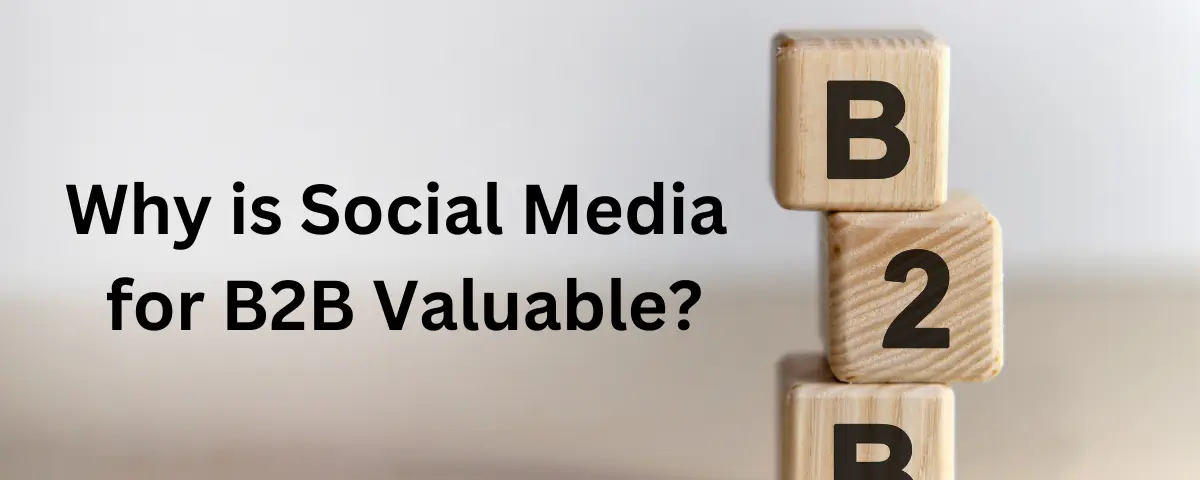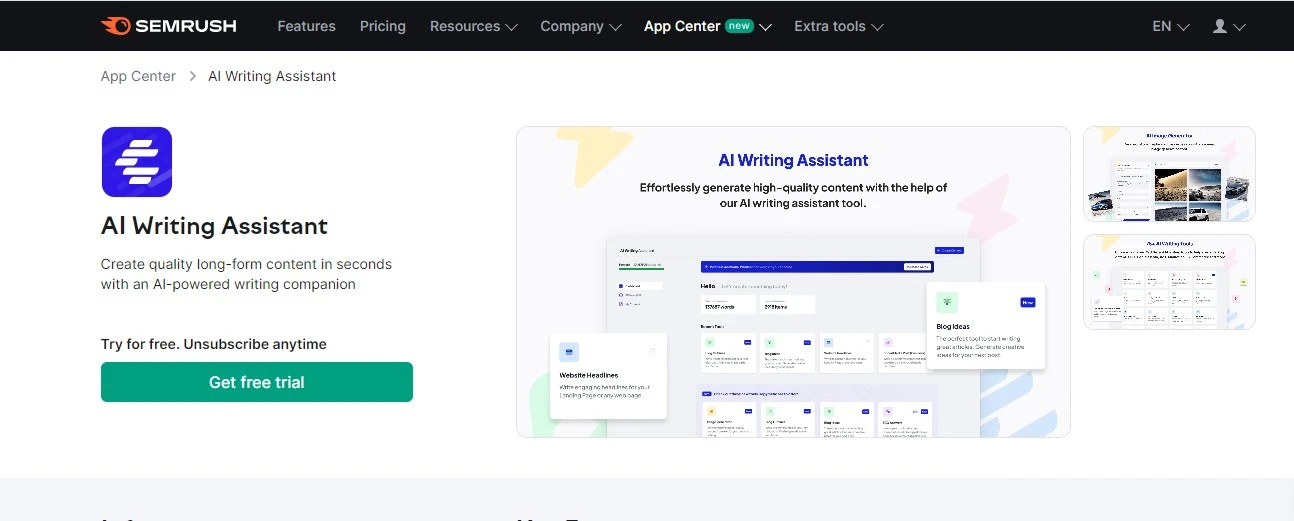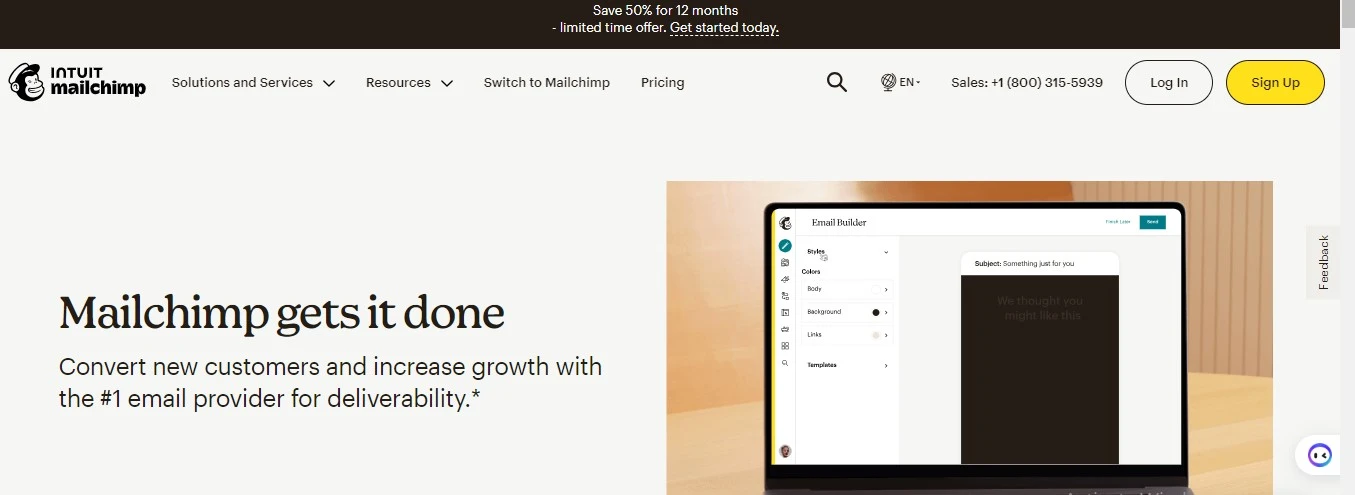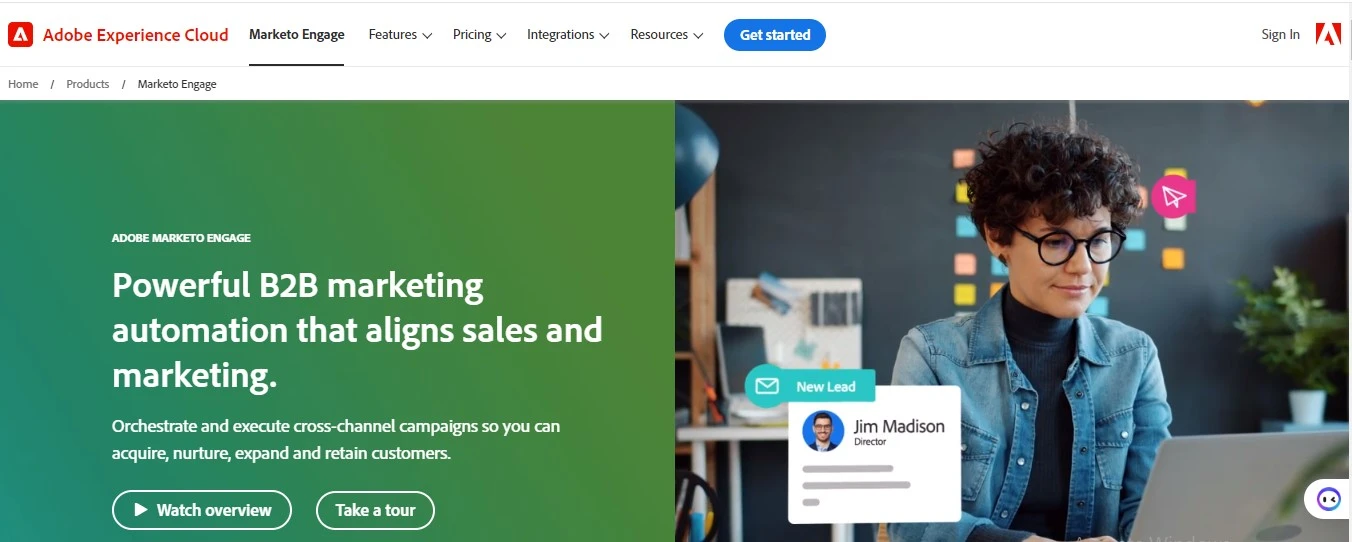Many B2B companies struggle to connect with potential customers using social media. Traditional marketing methods aren’t working as well, and it’s hard for businesses to stand out. This challenge is frustrating for companies trying to grow their client base and it can lead to flat sales and missed opportunities.
But what if you’re missing out on a lot of potential customers just because you’re not where they are? In a world where decision-makers spend hours on social media every day, not using these platforms effectively means you’re losing out. Your competitors might already be taking advantage of this and getting ahead with every post and interaction.
The good news is, there’s a solution: a well-planned B2B social media marketing strategy. if you want more innovative ways to get your first few customers online, do check out our ddigital marketing course page, to know how you can acquire the right marketing strategies to grow your customer base.
So learning how to develop a winning B2B social media strategy to achieve your marketing goals can help you attract new customers, show off your expertise, and build lasting business relationships.
In this article, I will walk you through how to use the power of social media to expand your reach and grow your B2B customer base.
What is B2B Social Media Marketing?
B2B (Business2Business) social media marketing involves leveraging social media platforms (LinkedIn, Twitter, and Facebook) to promote products or services to other businesses. The focus is on cultivating relationships and positioning oneself as a thought leader within the industry, rather than on direct sales tactics.
Unlike B2C (Business-to-Consumer) social media marketing, which is about selling directly to individual customers, B2B marketing has different goals, strategies, and content. B2B brands aim to provide informative content that addresses the specific needs and challenges of their target business audience.
The main objective is to build trust, generate leads, establish the brand as a leader, and nurture relationships throughout the marketing process. It requires a unique strategy compared to consumer-focused social media marketing.
Why is Social Media for B2B Valuable?
Get 50% Discount to Master ALL Aspects of Digital Marketing That Can Earn You $2,500 - $5,000 a month (Even if you are a complete beginner!)
Our students that intentionally implement what they learn from our digital marketing course make back the entire course fee within a single month or more after completing our course because our course gives them many income generating options with unlimited earning potential with no age or location barrier. The best part is no technical skills are required.
An opportunity to change your lifestyle and make money working from anywhere in the world. The results our students get from our digital marketing course prove this could be applied to any market or country and that it is designed for any skill level and work background.
*By signing up, you agree to our privacy policy and terms of service.
Business-to-business social media marketing provides a multitude of advantages, such as heightened brand exposure, reaching a wide audience, and demonstrating industry authority. This strategy enables companies to cultivate lasting relationships with key decision-makers and employees of client organizations, establishing their brands as knowledgeable and accessible experts.
Some of the benefits of B2B Social media include:
Create Quality Leads
Social media platforms provide sophisticated targeting features that can enable your business to connect with your desired audience and interact with potential clients. When you enhance your social media presence and share valuable content, your B2B business can attract qualified leads and guide them toward making a purchase.
Improve Customer Engagement and Loyalty
As a B2B business, improving customer engagement and loyalty is crucial for establishing enduring relationships with your clients. If you want to build strong, long-term partnerships with other businesses, you must focus on enhancing engagement and fostering loyalty.
With the use of platforms like LinkedIn, Facebook, and Twitter, you can engage with your customers in real-time, address their issues, and demonstrate your industry expertise.
This high level of engagement not only aids you in retaining current customers but also attracts new ones through positive referrals.
Increase Website Traffic
Leveraging social media platforms can drive more visitors to your B2B website, exposing your brand and offerings to a wider audience. When you consistently share valuable content and engage with your followers, you can attract potential customers and encourage them to explore your website further.
Increase Brand Awareness
Social media provides an excellent platform to showcase your B2B brand and build recognition within your industry. Some of the social media platforms have billions of active users, this allows your B2B company to connect with potential clients and exhibit your brand identity. When you are visible online, this will effectively raise your brand’s profile and position it as a trusted authority in your field.
Tangible Outcomes
One major advantage of using b2b social media is the potential to generate measurable results for businesses. By interacting with other companies, businesses, and professionals within the industry on platforms like LinkedIn or Twitter, you can forge valuable relationships that may result in new partnerships, collaborations, and business prospects.
Furthermore, you can measure and optimize your social media marketing efforts through the use of various analytics tools. This will help you to track performance and make informed decisions based on the data you gather.
9 B2B Social Media Strategy for Your Business to Try
Social media has become an essential part of doing business today. It allows companies to connect with their target customers and drive growth in their business.
Some of the best social media strategies that are valuable for business include:
1. Define Your B2B Objectives
Before you start using social media for your business, it’s important to decide what you want to achieve. Do you want to:
- Increase awareness of your brand.
- Get more leads and potential customers?
- Show that you are an expert in your field.
- Build stronger relationships with your current clients.
When you set clear and specific goals that you can measure, you can create a social media strategy and content that will help you reach those goals.
Remember, your objectives should be SMART: Specific, Measurable, Achievable, Relevant, and Time-bound. This will keep you focused, help you make good decisions, and allow you to track your progress.
An example of a SMART objective is:
“Increase brand awareness on LinkedIn by 25% over the next 6 months through consistent posting of industry-relevant content and engaging with our target audience of B2B decision-makers.”
This objective is:
- Specific: It focuses on increasing brand awareness on the LinkedIn platform.
- Measurable: The goal is to achieve a 25% increase in brand awareness.
- Achievable: A 25% increase in 6 months is a realistic target.
- Relevant: Increasing brand awareness on LinkedIn aligns with the B2B focus and the desire to establish thought leadership.
- Time-bound: The objective has a clear timeline of 6 months.
By setting this type of SMART objective, the B2B business can effectively tailor its social media strategy, content, and engagement efforts to achieve the desired outcome of enhanced brand awareness within its target audience.
2. Analyze Your Competitors on Social Media
Keeping an eye on your B2B competitors’ social media presence can provide valuable insights to improve your own strategy. You should take your time to review the type of content they are posting, the engagement levels, and the ways they interact with their audience.
This competitive analysis can reveal their best practices, identify gaps in the market that you can take advantage to grow your brand, and inspire new ideas for your own social media approach.
When you understand how your competitors are leveraging social media, you can find opportunities to differentiate your brand, create more compelling content, and better connect with your target customers.
3. Choose the Right Social Media Platforms
With so many social media platforms available, it’s crucial to select the ones that align best with your B2B audience and objectives. While platforms like LinkedIn, Twitter, and Facebook are popular choices for B2B, the right mix for your business will depend on factors such as your industry, target demographic, and the type of content you plan to share.
Take the time to research where your ideal customers are most active and engaged. Consider the unique features and strengths of each platform – for example, LinkedIn excels at professional networking and thought leadership, while Twitter is ideal for real-time engagement and sharing bite-sized insights.
By focusing your efforts on the platforms that offer the most relevant reach and engagement potential, you can maximize the impact of your B2B social media strategy.
4. Create Original Content
Crafting unique, valuable content is essential for standing out in the B2B social media landscape. While curating industry-relevant posts from other sources has its place, consistently creating original content demonstrates your expertise and thought leadership.
This could include blog posts, videos, infographics, or even behind-the-scenes glimpses into your company culture. When you invest time and resources into developing high-quality, informative content, you position your brand as a trusted advisor and problem-solver for your target audience.
Original content also encourages engagement, as followers are more likely to share and interact with posts that offer genuine value. Remember to keep your content aligned with your brand’s unique voice and the specific needs and interests of your B2B customers.
5. Share your Brand Story
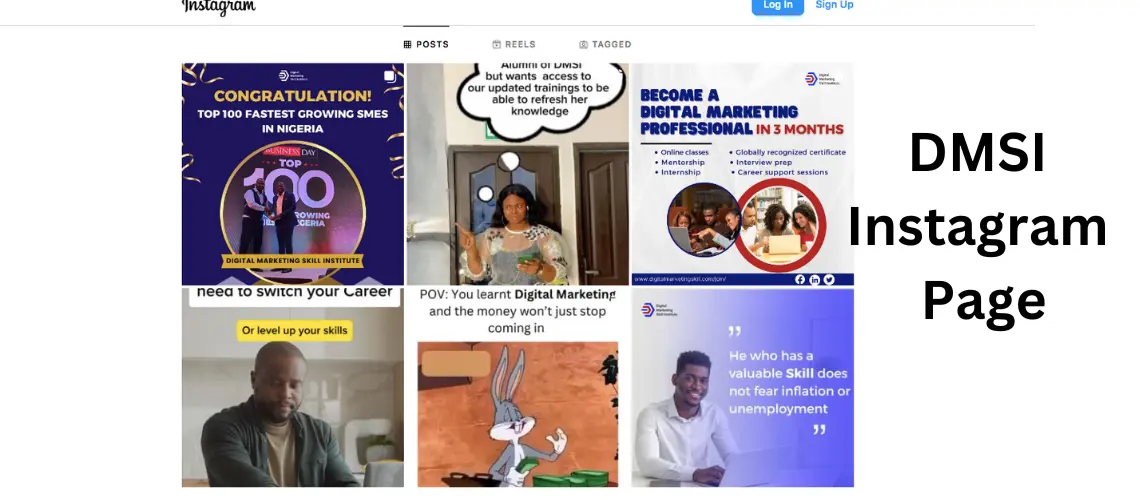
When creating content for social media, it’s important to highlight the story behind your brand. Your brand’s history, mission, and what makes it unique can help show your values to your audience. The goal is to build trust and strong relationships with other businesses in your industry.
Share your experiences, successes, and challenges to make your brand feel more human and connect with your audience on a deeper level. You can also feature your team members to further humanize your brand.
This approach works well for B2B companies of all sizes. Telling your brand’s story helps potential partners and customers get to know you better and see why you’re the right choice for them.
6. Engage in Conversations
Social media is all about engaging in meaningful conversations with your B2B audience. Rather than simply broadcasting your message, make an effort to actively listen, respond, and build relationships with your followers. This could involve answering questions, offering advice, or even just having casual discussions related to your industry.
When you engage in two-way conversations, you demonstrate that you value your audience’s input and are committed to providing genuine value. This level of interaction helps to humanize your brand and foster a sense of community among your B2B customers and partners.
Remember to respond promptly and with a friendly, professional tone to make the most of these valuable interactions. Over time, this consistent engagement can lead to stronger relationships, increased loyalty, and even new business opportunities.
7. Leverage B2B Influencer Marketing
If you are into B2B, partnering with industry influencers can be a highly effective way to amplify your B2B social media presence and reach. Identify thought leaders, subject matter experts, or respected figures within your industry who have a strong following and credibility among your target audience.
You can collaborate with these influencers, you can tap into their established networks, and benefit from the trust and authority they have built. This could involve having the influencer create content that features your products or services, participate in a joint webinar or podcast, or simply endorse your brand to their followers.
Leveraging influencer marketing helps validate your offerings, expand your visibility, and lend additional credibility to your B2B brand. When executed strategically, this approach can lead to increased engagement, qualified leads, and stronger relationships with your target customers.
8. Invest in Social Media Ad Campaigns
While organic social media efforts are essential, investing in targeted ad campaigns can significantly boost your B2B marketing results. Social media platforms offer advanced targeting capabilities that allow you to reach your ideal customers with laser precision. You can target by job title, industry, company size, interests, and more to ensure your ads are being served to the most relevant audience.
Experiment with different ad formats, such as sponsored posts, video ads, carousel ads, or lead generation forms, to determine what resonates best with your B2B audience. Monitor your ad performance closely and optimize your campaigns based on key metrics like click-through rate, cost per lead, and return on ad spend.
With careful planning and testing, social media advertising can be a powerful tool for generating high-quality leads, driving website traffic, and ultimately boosting your B2B sales and revenue.
9. Monitor and Evaluate Performance
Finally, when running a campaign, it is crucial for you to regularly monitor and evaluate performance to ensure you are meeting your goals and objectives.
depending on the metric you want to measure such as engagement rates, reach, and conversion rates, you can identify areas of strength and areas for improvement. This data-driven approach allows you to make informed decisions on how to optimize your social media efforts and drive results for your business.
In addition, conducting regular performance evaluations enables you to track progress over time and make adjustments as needed so you can stay competitive. When you do this, you can continuously refine your social media strategy and drive success for our B2B initiatives.
5 Best Social Media Platforms for B2B Marketing
In B2B marketing, selecting the appropriate social media platforms is essential for efficiently reaching your target audience. Here are five top social media platforms for B2B marketing:
1. Linkedin
LinkedIn is considered the premier social media platform for B2B marketing with over 1 billion members in over 200 countries. It is focused on professionals and business-related content, and as such offers a valuable platform for networking, lead generation, and thought leadership. It provides features such as LinkedIn Groups, LinkedIn Ads, and LinkedIn Pulse for distributing and engaging with content.
2. YouTube
YouTube is the second-largest search engine globally and is a robust and potent platform for B2B marketers. It offers the opportunity for detailed content creation and sharing, making it an ideal choice for businesses looking to promote their products or services through video content.
With a user base exceeding 2 billion users, YouTube presents a valuable platform for showcasing products, imparting industry knowledge, and positioning oneself as a thought leader in a specific field. By incorporating targeted keywords and employing effective SEO strategies, businesses can enhance their YouTube channel to draw in the desired audience and boost website traffic.
3. Facebook
Facebook is a valuable platform for B2B marketing due to its wide reach and precise targeting options. It is perfect for establishing a business presence, sharing compelling content, and building credibility with potential customers. It can be especially effective for building brand awareness and driving website traffic.
4. Instagram
Instagram is commonly utilized for business-to-consumer marketing, but it is also a valuable tool for business-to-business marketing. It provides a visually appealing platform for sharing content and reaching a larger audience. Instagram is especially effective for businesses with visually attractive products or services.
5. Twitter
Twitter provides a valuable platform for B2B marketers to disseminate industry news, interact with their target audience, and enhance brand visibility. The platform facilitates real-time communication and enables businesses to participate in pertinent conversations through the use of hashtags. Particularly beneficial for software marketers, Twitter is a widely favored option for B2B social media marketing efforts.
Mistakes to Avoid in Your B2B Social Media Strategy
Creating a successful B2B social media strategy is essential in today’s digital world. To guide you in the right direction, here are 5 mistakes to steer clear of when developing your B2B social media strategy.
1. Lack of Comprehension of your Target Audience
Having a deep understanding of your target audience is essential in any business-to-business social media marketing strategy. Without a clear grasp of who your audience is and what they want, your efforts may not be effective. Through comprehensive research and analysis, you can customize your content and messaging to connect with your audience and increase engagement.
2. Absence of clearly defined goals
In the world of B2B social media marketing, having clearly defined goals is vital. Without a clear direction, businesses may find themselves wasting time and resources on ineffective strategies. By setting specific, measurable goals, you can track their progress and adjust their approach as needed.
3. Prioritize Quantity Over Quality
It is essential to prioritize quality over quantity to establish credibility and build lasting relationships with potential clients. While it may be tempting to focus on producing a large volume of content, it is more effective to ensure that each post is well-researched, engaging, and valuable to your target audience. By prioritizing quality content, you can demonstrate your expertise and industry knowledge, ultimately establishing yourself as a trusted authority in your field.
4. Neglecting Engagement and Conversations
Social media is a two-way street. It’s not enough to just post content – you need to interact with your audience as well, acknowledge comments and messages, and actively engage in pertinent discussions. When you interact with your audience, you show that you value their input and want to build real relationships.
5 Best Tools for B2B Social Media Marketing
1. Google Search Console
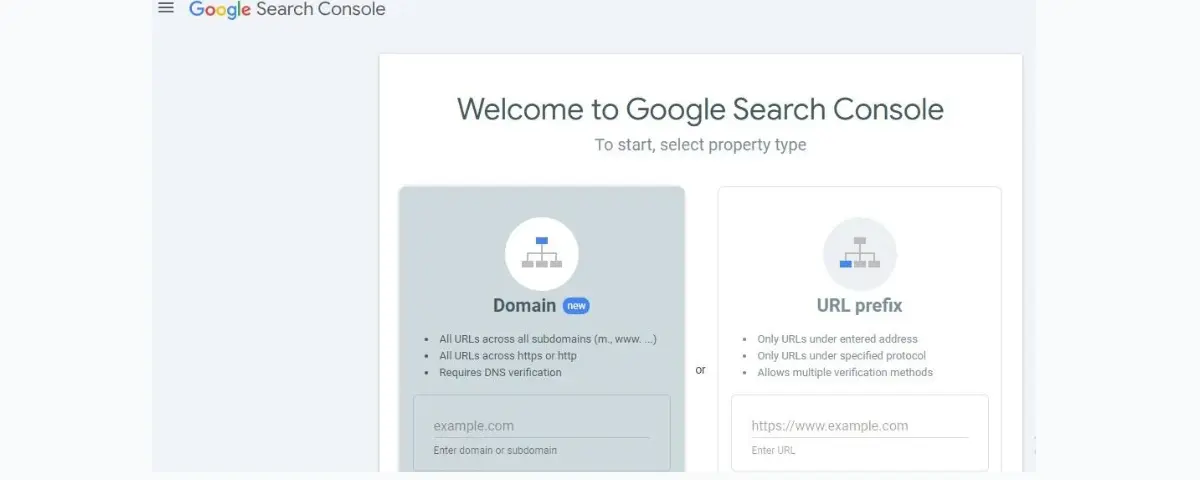
Google Search Console (GSC) provides comprehensive search data that sets it apart from other tools. It is considered the most reliable source for SEO and search engine marketing metrics. You can use GSC’s tools to identify pages and keywords that are either performing well or underperforming and to ensure your website maintains a strong presence in Google search results.
Furthermore, by connecting GSC to your site, you can:
- Review your performance in Google search results over time
- Identify technical SEO errors
- Gain insights to optimize your website’s presence in Google search results
Overall, GSC is an essential tool for maintaining and improving your website’s search visibility.
2. Semrush AI Writing Assistant
The SEMrush AI Writing Assistant is a great tool for businesses looking to improve their B2B social media content. It analyzes keywords and trends to suggest relevant topics and ways to engage your target audience better.
This tool can create high-quality content quickly and generate content for different platforms. This saves businesses time and resources while still maintaining a strong online presence.
3. Canva
Canva is a great tool for B2B companies to create visually engaging social media content. It has an easy-to-use platform with templates, fonts, and images that allow you to design eye-catching graphics, presentations, and posts.
Using Canva, B2B brands can showcase their products and services in a visually appealing way. This helps enhance their social media presence and attract more customers.
The extensive design features on Canva make it simple for businesses to create high-quality, visually compelling content for their social media strategies. This is crucial in the competitive digital marketing landscape.
4. Mailchimp
With Mailchimp, you can enhance your email marketing efforts by creating visually compelling and captivating content that connects with your desired demographic. It is a good platform for crafting, launching, and overseeing email campaigns that captivate your audience and foster engagement. By using Mailchimp’s sophisticated analytics and segmentation capabilities, you can personalize your communications for various B2B social media channels, maximizing effectiveness and engagement. Stay ahead of your competitors and achieve tangible results with Mailchimp.
5. Adobe Marketo Engage
Adobe Marketo Engage is a robust tool designed for B2B social media marketing, providing advanced features to assist businesses in increasing engagement and acquiring leads on social platforms.
Through its sophisticated analytics and automation functions, Marketo Engage allows companies to monitor and evaluate the success of their social media campaigns instantly. When you utilize the platform’s extensive targeting and customization features, businesses can create tailored social content that resonates with their target audience.
Top B2B Social Media Marketing Trends in 2024
Numerous important trends are changing the way businesses use social media to enhance their marketing strategies. These emerging trends demonstrate the increasing complexity of B2B social media marketing, focusing more on insights driven by data, customization, and integration across different channels.
1. Authenticity and Personalization
Businesses are trying to build stronger connections by showing the human side of their brand and sharing authentic, relatable content. This helps build trust and credibility.
Businesses that focus on authenticity and personalization will stand out from the competition. By being genuine and tailoring their approach, they can forge deeper relationships with their target audience.
2. AI-Powered Interactions
The use of AI-powered interactions is rapidly growing as a key trend in B2B social media marketing. Companies are now harnessing the power of artificial intelligence to enhance customer interactions, offer immediate support, and tailor marketing strategies. This advanced technology enables businesses to connect with their target audience more efficiently, leading to increased conversions and improved customer satisfaction.
3. Influencer Marketing
Influencer marketing has become a dominant trend in social media, allowing brands to connect with a larger audience through credible voices. This strategy is expected to continue its growth without any signs of decline. Influencers now play a crucial role in influencing consumer behavior and purchasing choices. With the emergence of new platforms and technologies, the world of influencer marketing is ever-changing. Brands must stay updated and adjust their strategies accordingly to remain competitive.
4. Short-Form Video Content
Short-form video content is becoming increasingly popular in B2B social media marketing. Companies are using platforms such as LinkedIn and Twitter to produce engaging videos that grab the attention of their target audience quickly. This type of content enables businesses to convey their message in a concise and impactful manner, making it perfect for busy professionals seeking quick and informative content. By integrating short-form videos into their social media strategy, B2B companies can effectively reach their audience.
Conclusion
To make your business grow, B2B companies can no longer afford to overlook the power of social media marketing. With decision-makers increasingly active on platforms like LinkedIn, Twitter, and Facebook, failing to have a strategic presence means missing out on a wealth of potential customers.
The key is to approach social media with intention. Define your objectives, research your audience, create engaging content, and actively engage with your followers. Consistency and authenticity are also crucial – post regularly, respond to comments, and always provide value.
To use social media to connect with your ideal customers, start by registering for our digital marketing training course to learn how you can acquire the right marketing strategies to grow your customer base.
While it may take time to see results, a strong B2B social media presence will pay dividends in the long run. You’ll build brand awareness, establish trust, and position yourself as a go-to resource in your industry. Ultimately, this will translate to more leads, sales, and long-term business growth.
FAQs
How to do B2B marketing on social media?
To successfully carry out B2B marketing on social media, it is important to create valuable content that is specifically tailored to your target audience. Engaging with industry professionals, utilizing LinkedIn for networking, leveraging paid advertising to reach decision-makers, and tracking metrics to refine your strategy for the best results are all key components of an effective B2B marketing strategy on social media.
Does social media marketing work in the B2B marketplace?
Yes, social media marketing has proven to be highly effective in the B2B marketplace. It enables the generation of leads, increases brand awareness, and fosters engagement with industry professionals. Key platforms such as LinkedIn, combined with strategic content creation, are crucial in achieving success in B2B social media marketing. Using social listening and personalized content can amplify its effectiveness in attracting new customers and enhancing brand visibility.
How to use social media for B2B marketing?
In order to maximize the use of social media for B2B marketing, it is important to focus on platforms where your target audience is most active. Share valuable industry insights and thought leadership content, and engage in meaningful conversations with your audience. Use LinkedIn for professional networking, and consider using paid advertising to reach your target audience more effectively. Analyze data to continuously refine your marketing strategy and drive B2B leads and conversions.
Further Reading
The Ultimate Guide to B2B Marketing in 2024
What Is Digital Advertising? Definition, Types, and Examples
Branding and Marketing: What’s the Difference and How They Work Together
How To Generate Leads On LinkedIn | 10 key Strategies You Should Leverage




